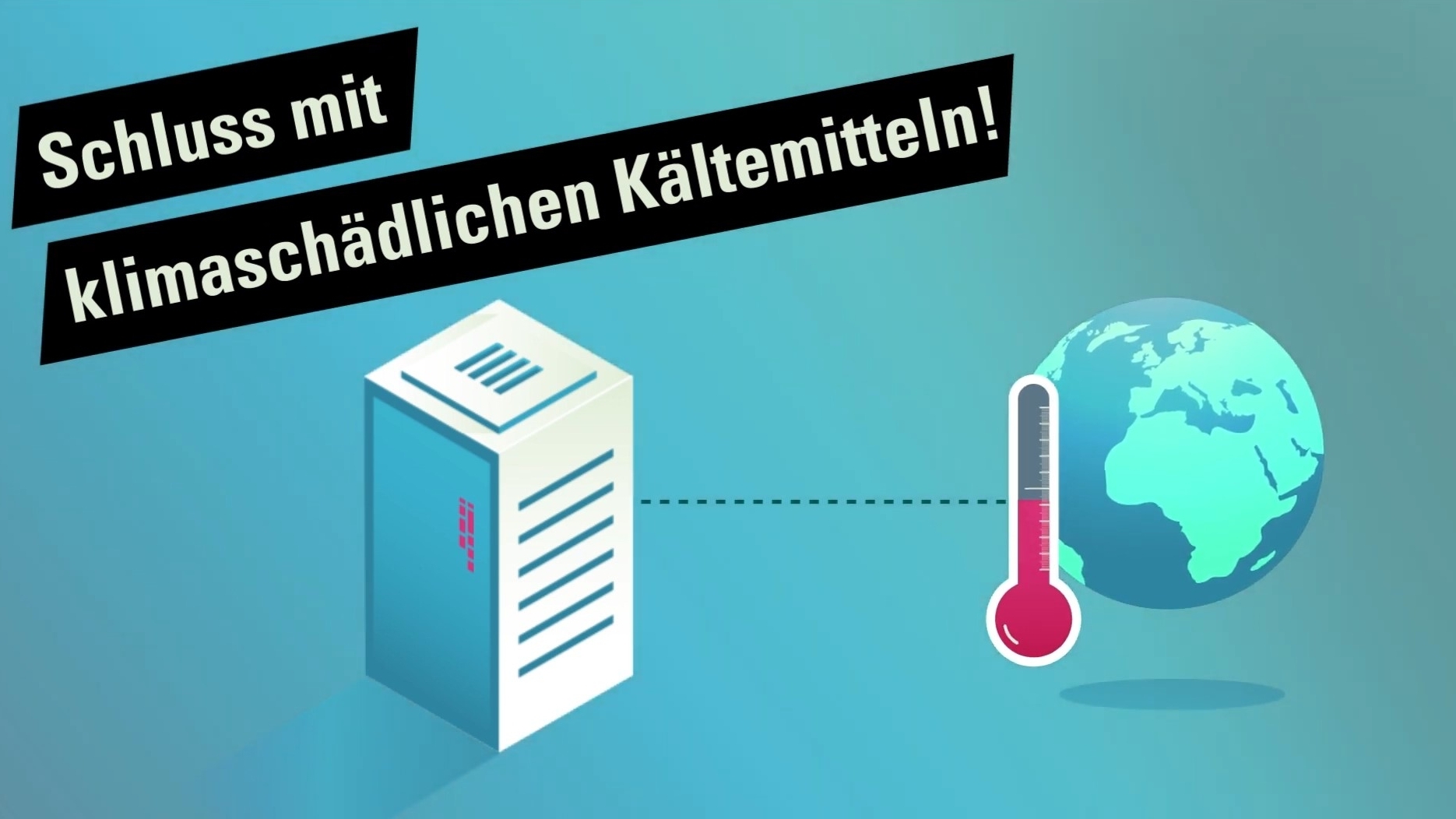Prior1, a specialist in the construction and operation of data centers, has made a forward-looking decision: From January 1, 2023, the company will only offer air conditioning solutions with natural refrigerants for cooling IT components in data centers. By voluntarily dispensing with climate-damaging refrigerants, Prior1 significantly exceeds the legal requirements and sends an effective signal in terms of climate protection.
The increasing digitalization of the economy and society is leading to a boom in the data center sector. They are the indispensable heart of digitization. According to the energy supplier E.ON, there are already around 53,000 data centers in Germany. However, this development also poses a whole range of challenges. One of the biggest is the issue of air conditioning. This is because data centers need to be cooled so that the sensitive IT technology in them can work optimally. Air conditioning not only consumes a lot of energy, but also emits large quantities of environmentally harmful greenhouse gases.
8 % of global greenhouse gas emissions
Around 8% of global greenhouse gas emissions are attributable to refrigeration/air conditioning technology. A quarter of this is due to the release of climate-damaging refrigerants. The refrigerants currently used in air conditioning units are fluorinated or partially fluorinated hydrocarbons (HFCs), which are harmless to the ozone layer but have a high global warming potential. The use of these fluorinated greenhouse gases (F-gases) is regulated in the so-called EU F-Gas Regulation in order to significantly reduce the marketing and use of these climate-damaging substances. However, there is also a flourishing black market for HFC refrigerants, which works against the EU targets.
HFO refrigerants are not a sensible substitute
The refrigerant industry touts so-called HFO refrigerants as an alternative, but these have unacceptable disadvantages, such as the fact that they degrade in nature to form persistent trifluoroacetic acid (TFA), which accumulates in surface waters, groundwater and the oceans. Even in diluted form, TFA is harmful to aquatic organisms and is also suspected of affecting the human central nervous system.
The real alternative: natural refrigerants
Prior1 is committed to sustainability. This is why the company cannot justify the use of climate-damaging refrigerants or their replacement with HFO refrigerants. Instead, Prior1 relies on natural refrigerants, such as water, propane,CO2 or ammonia, and will only offer refrigeration systems with these refrigerants from 2023. "This decision brings with it a whole range of challenges, both technical and commercial. We are aware that there may be business disadvantages. We accept that. The legal provisions are not strict enough for us. That's why we will be applying our own, stricter rules from 2023," explains Stefan Maier, Managing Director at Prior1.
Advantages of natural refrigerants
The main advantage of natural refrigerants is their low global warming potential. As they are substances that occur naturally in the environment, they have no previously unknown negative environmental effects that could later lead to regulation or a ban. They are also inexpensive to produce, install, operate and dispose of. And: they are available in the long term and stable in price, which is essential for data center operators. After all, they also need highly available refrigerants for their high-availability data centers.
Binding voluntary commitment
Prior1 has made a voluntary commitment to implement its own specifications. "We have already gained positive experience with the use of natural refrigerants in several projects. We can therefore take the step towards a complete changeover, even if this is associated with business risks and represents a technical challenge," says Tobias von der Heydt, Managing Director at Prior1. "We have already signed the voluntary commitment. The entire workforce is behind this decision."


